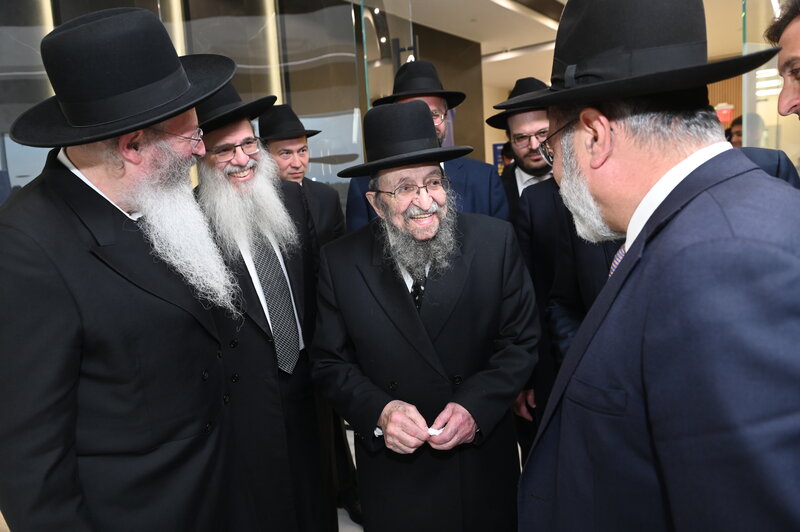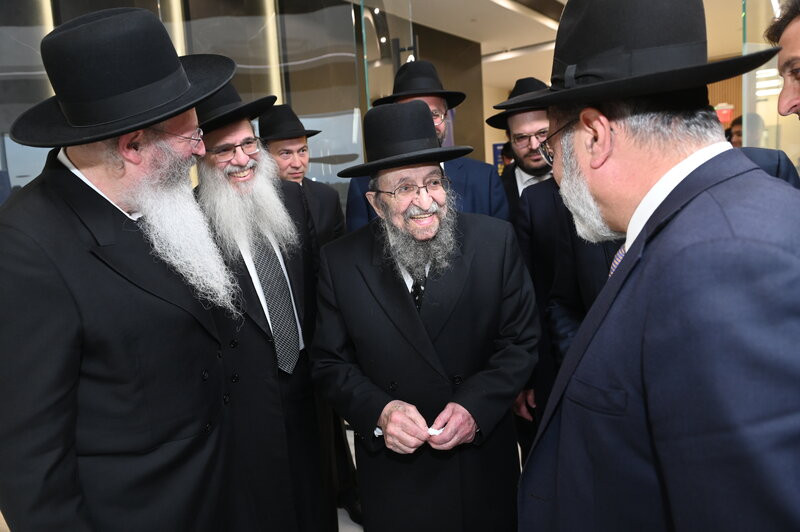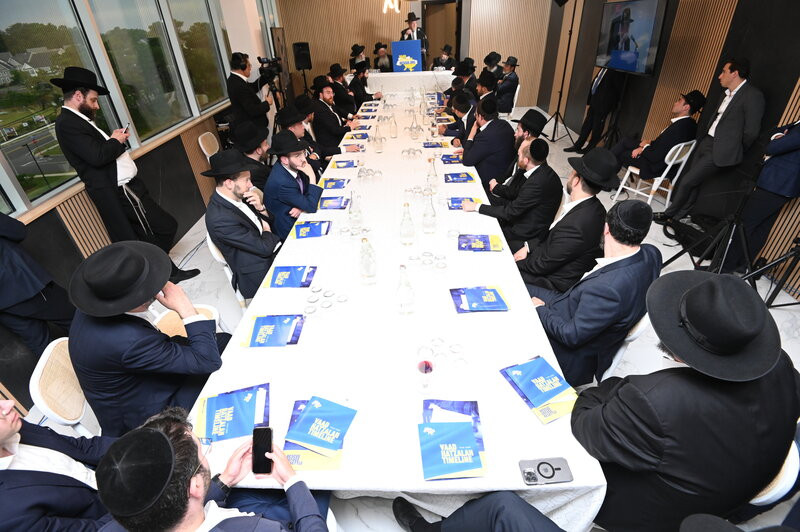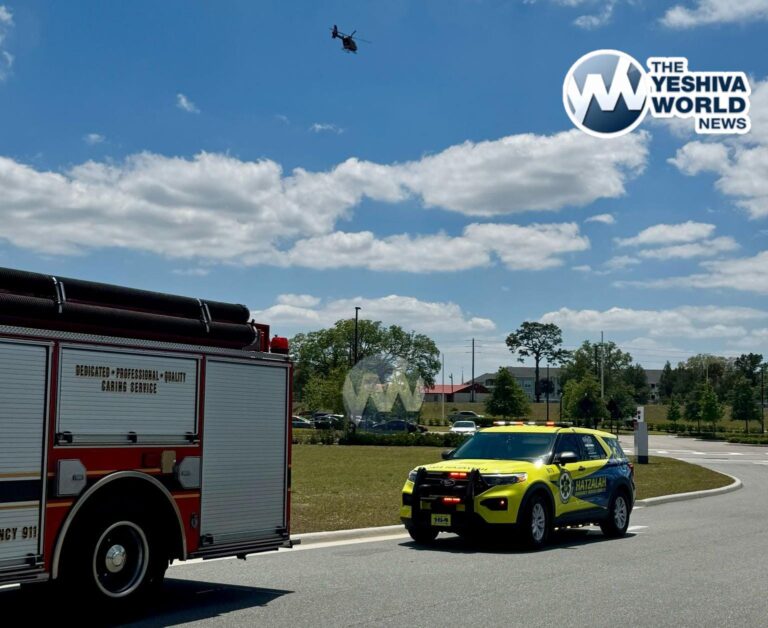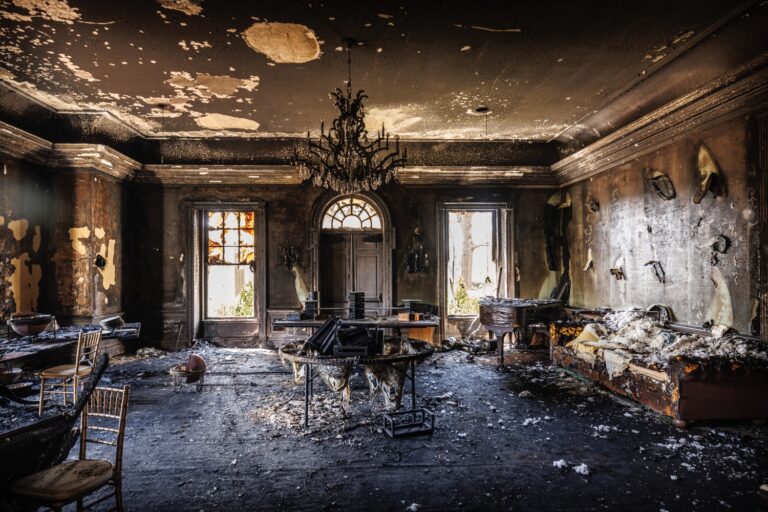Roshei Yeshiva and Askanim gather in Lakewood on behalf of Ukrainian refugees
It’s the least we can do
A group of Roshei Yeshiva, askanim, and Lakewood community members gathered on behalf of Ukrainian Jewry, to revitalize and reaffirm their fundraising and hatzalah efforts. The plight of Ukrainian Jewry is a contemporary issue that we’ve all been following closely. But as the war in Ukraine drags on and headlines move to brighter news stories, their desperate straits are slowly fading from public awareness. Unfortunately, their situation is far from over.
Rabbi Menashe Frankel, one of the Vaad Hatzalah’s chairmen, opened the evening applauding the hatzalah efforts and unprecedented achdus of Klal Yisroel, who stepped up in a real way to help the refugees evacuate and resettle. “It’s something the outside world cannot fathom,” he said, “and yet we are always there for our brethren.”
“Rav Chaim Volozhiner once turned away a meshulach,” he said, “and that man was later found out to be a missionary. When asked how he knew, Rav Chaim explained that he had felt a powerful urge to give. The lack of a yetzer hara was what made it clear to him that this wasn’t a legitimate cause. The yetzer hara is active when something is real and pressing, and we need to step up and help out as much as we can. We haven’t stopped buying our luxuries and comforts – the least we can do is give to them.”
“I received a phone call at 11AM with an irate caller asking how we could not be giving to a specific organization’s hatzalah efforts,” Rabbi Frankel recounted. “Another call came in that day, with someone asking how we could possibly give to that same specific organization’s hatzalah efforts!
“That’s the metzius. It’s mamash hatzalas nefashos. Vos men ken tun, is men mechuyav tzu tun.”
-
Rav Shmuel Kamenetsky, Philadelphia Rosh Yeshiva and Chaver Moetzes Gedolei HaTorah
Answer Harav Shmuel’s Call – Donate Today!
All because they cared
In our efforts, we are listening to the Roshei Yeshiva; we keep everything completely transparent, we’re doing what has to be done, and we are seeing a lot of hatzlacha, B”H. But if we were to stop to ask questions, we could lose our opportunity to help out! We’re not here to ask questions – we’re here to save children, to save doros, and be zoche to take part in real hatzalas nefashos.”
Rav Shmuel Kamenetsky, Philadelphia Rosh HaYeshiva, reiterated Rabbi Frankels message. “We need to give,” he said. “We need money, and it will be spent mamash on hatzalas nefashos. Vos men ken tun, is men mechuyav tzu tun.”
R’ Sholom Kamenetsky, Rosh Yeshiva of Yeshiva of Philadelphia, described his experience during the Vaad Hatzalah Europe trip, where Roshei Yeshiva and Vaad members met with refugees and saw their situation firsthand. “I was there. I saw it in their eyes. Yidden are suffering physically, b’ruchnius. These are people who had parnassah, successful gvirim who are lost and displaced now. There’s a lot of fatigue now, their story is not in the news anymore, people are tired of hearing about it. But the needs aren’t stopping at all. They need so much help – every penny is hatzalas nefashos mamash. I’m not in askanus, but this is a mitzvas hashaah, and everyone must do what they can.”
R’ Reuven Wolf spoke next, explaining his role in the Vaad Hatzalah. “I am involved because I know firsthand the impact of the Vaad Hatzalah after World War II,” he said. “My father was the only one in his town to survive. After the war, he walked to Bratislava with an older cousin. This cousin joined a group that was leaving for Israel with the Jewish Agency, and was r”l lost to Yiddishkeit.”
He then related the following story. “The Rosh Yeshiva shared with me that a Rav called his Zeide, Reb Aharon Kotler, in 1945. He said that young refugees were roaming Europe, and if there was no yeshiva, they would become goyim. R’ Aharon said ‘Make the yeshiva – the first year’s budget will be on me.’ He had no money, but he opened a yeshiva in France. Well, my father was one of the first talmidim, and he has generations of ehrliche doros because of the efforts of people like Rav Kotler and Mike Tress – because they cared.”
“Lakewood is known as the Ir Hatorah, but it is also the Ir Hachesed,” he added. “More tzedakah flows from Lakewood than any other city in the world. Hashem gave us this chance to make sure that his children are being taken care of, and the Vaad is doing what needs to be done. We saw this in Europe: the call center in Vienna, helping refugees with food, housing, and jobs, the school that was built in Berlin, the many displaced Ukrainians in Romania who are receiving aid, the summer camp programs… The Israel office is busy round the clock helping families with Chinuch Atzmai and Lev L’Achim, getting schools and teachers.”
“These efforts have cost us $24 million so far, and we still have a long way to go,” he said. “We’re here tonight to make sure that we can continue. This is a situation that hasn’t come up since the Second World War, and we can make a difference. As the navi Yeshaya said: ‘ציון במשפט תפדה ושביה בצדקה.’ This is the tzedakah that he was talking about.”
The evening ended on an inspirational note, as the Lakewood community showed its generous support. One memorable, sizable check came in with a short note. “I put this away for my wife, for our tenth anniversary,” it said. “She asked me to give it to you instead.” Mi K’amcha Yisrael!
To date, $6 million has been raised in Lakewood alone. Please help us reach $10 million!
Every donation is allocated to real, pressing needs for the refugees.
May you be zoche to always be on the giving end.

